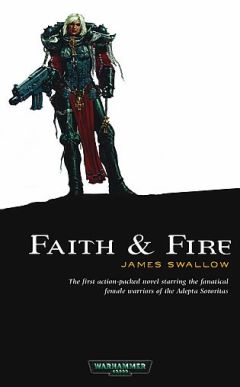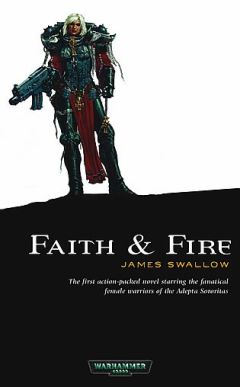Пользователь - WORLDS END
На электронном книжном портале my-library.info можно читать бесплатно книги онлайн без регистрации, в том числе Пользователь - WORLDS END. Жанр: Прочее издательство неизвестно, год 2004. В онлайн доступе вы получите полную версию книги с кратким содержанием для ознакомления, сможете читать аннотацию к книге (предисловие), увидеть рецензии тех, кто произведение уже прочитал и их экспертное мнение о прочитанном.
Кроме того, в библиотеке онлайн my-library.info вы найдете много новинок, которые заслуживают вашего внимания.

Пользователь - WORLDS END краткое содержание
WORLDS END читать онлайн бесплатно
As the friends of Lanny Budd portrayed it to him, two evil creatures had been spewed up from the Russian cesspool, and had managed to seize power. They were still holding on to it - in spite of the fact that the newspapers reported Lenin as shooting Trotsky and Trotsky as poisoning Lenin about once a week. They had led the workers and peasants in a campaign of massacre, and the nobility and land owners of the Tsar's realm had fled, counting themselves lucky if they had a few jewels sewed up in the lining of their coats. Paris was full of these refugees, with pitiful and ghastly tales to tell; Lanny heard some of them, and his mother, in her incompetent way, made efforts to help the victims. It seemed to her sympathetic soul unbearable that people who had never had to work and so didn't know how to work should suddenly find themselves without money to pay for their meals. Robbie had to tell her more than once that his fortune was not equal to supporting the Russian aristocracy in the state to which it had been accustomed.
Of course Europe had to protect itself against this Red menace, said Lanny's friends; and so the Allied armies had established what they called a cordon sanitaire around the vast former empire of the Tsar. The Japanese and the Americans had seized Vladivostok and the eastern half of the Trans-Siberian railway. The British and Americans had occupied Archangel and Murmansk in the far North, blocking all commerce by that route. Along the European land front the Allied troops stood on guard, and French and British officers were busy organizing anti-Bolshevik Russians, and providing them with arms and money and sending them into the Ukraine, Russian Poland, and the Baltic provinces. This fighting had been going on for a year now, and each day Lanny read in the papers of "White" victories and was assured that soon the dreadful menace would be at an end.
But it was like a forest fire, whose sparks flew through the air; or perhaps a plague, whose carriers burrow underground and come up through rat-holes. The emissaries of the Bolsheviks would sneak through the sanitary cordon, and creep into the slums of some city of Central Europe, telling the hungry workers how the Russians had made a revolution, and offering to help do the same. The armies would catch many of them and shoot them; but there were always more. Even before the armistice, a Jewish "Red" by the name of Eisner had seized the government of Bavaria; in Berlin two others named Liebknecht and Luxemburg - the latter a woman, known as "Red Rosa" - were carrying on a war in the streets, seeking to take power from the Socialist government which had arisen in Germany after the overthrow of the Kaiser. In Hungary it was the same; a member of the nobility who called himself a Socialist, Count Karolyi, had given his estates in an effort to help the poor of that starving land, but now a Bolshevik Jew was leading a movement to unseat him and set up Soviets on the Russian pattern.
Always it was a Jew, people pointed out to Lanny; and this kindled to flame the anti-Semitic feeling always latent among the fashionable classes of Europe. "What did we tell you?" they would say. "The Jews have no country; they are seeking to undermine and destroy Christian society. It is a worldwide conspiracy of this arrogant people." Robbie said something along this line; and Lanny grinned and replied: "Be careful, you've got a Jewish partner now!"
Robbie made a wry face. His Anglo-Saxon conscience troubled him, and his aristocratic feelings resented the odor of the junk business. But Johannes Robin had bought a couple of hundred thousand hand grenades, and had already sold the powder before he had got it extracted. The prospects looked excellent; and Robbie Budd just couldn't bear to sit on a big pile of money and not make use of it - the use, of course, being to make more money.
VI
One day when Lanny went to lunch he found at his table a young army officer, introduced as Captain Stratton; handsome, well set up, as they all were, full of smartness and efficiency. Military uniforms were plentiful in the Crillon dining room, as all over Paris; someone had counted up the soldiers of twenty-six different nations to be found in the capital at that time. Captain Stratton was connected with the Intelligence Service of the army, and it -was his special task to watch out for any efforts of the Bolsheviks among the doughboys. It was a confidential subject, but the officer was in the midst of persons who had a right to know what was going on.
He talked interestingly about his work. He said that the slum denizens were in a state close to madness, with hunger, the fever of war, and the vision of sudden power. It couldn't be said that they were without training for power, for they had a sort of discipline of their own; in fact, they had a whole culture, which they called "proletarian," and which was to replace our present culture, called "bourgeois." A truly frightening thing, said the officer, who before the war had been a rising young architect in Chicago. "I was never afraid of the Huns," he declared, "but I admit that I'm afraid of these Reds."
Just recently, he went on to tell, he had come upon evidence of the activities of a press on which had been printed leaflets addressed to the denizens of the Paris slums, calling upon them to rise against the profiteers and seize the food which was in the depots, and which the bureaucrats were refusing to release. The captain had one of these leaflets with him; it ended with a string of slogans followed by exclamation points, and was signed by the Conseils des Ouvriers de St.-Denis. "They don't say Soviets," remarked the officer. "But that's what the word means."
Then even more startling news: he expected to have proof that these agitators were preparing an appeal to the American troops to break ranks and go home. These troops had enlisted to oust the Kaiser, and why should they stay to hold the workers of Europe in slavery to landlords and money barons? It was a plausible argument.
"Surely you're going to stop that!" exclaimed one of the professors.
"We'll have to," replied the officer. "But it's a bit awkward, because the fellow who is most active in the matter happens to be an American."
"What difference does that make?"
"Well, my God, if you arrest an American Red in Paris, you can't keep it away from the newspapers; then all the agitators at home will be swarming like hornets."
Professor Davisson, who specialized in the Balkan languages, and had just come back from a mission to the Bulgarian front, .expressed the opinion that the unprintable scoundrel ought to be dealt with by military law at once. To this Alston interposed a question: "What's the use of having licked the Germans if you have to sacrifice American free speech in the procиss?"
"Do you think that free speech means the right to overthrow the government which protects your free speech?" demanded Davisson "Free speech doesn't overthrow governments," answered the other. "It's the lack of free speech."
"You mean you'd let Bolsheviks incite our troops to mutiny?"
"They wouldn't get anywhere, Davisson - not unless there was something wrong with what the army was doing."
So they argued, and got rather hot about it, as men were apt to do these days; until one of them, wishing to dissipate the storm clouds, asked of Captain Stratton: "What sort of fellow is it that's printing the leaflets?"
"He calls himself a painter, but I don't know if he works at it. He's lived most of his life over here, and I guess he's absorbed what the Reds call their 'ideology."
"Budd knows a lot of painters here," said Lanny's employer. "What's the man's name?"
"I don't think I'm at liberty to tell that," replied the captain. "Perhaps I shouldn't have said as much as I have."
"It'll all be confidential," said Professor Davisson, and the others nodded their confirmation. As for Lanny, he kept up a pretense of interest in his food, and prayed that nobody would notice the blood that had been stealing into his cheeks and throat, and even, so he felt, to the roots of his hair.
VII
When the party broke up, Lanny said to his chief: "I wish you'd take me upstairs to your room for a minute. There's something important I want to tell you." When they were alone, he explained: "I can't be sure, but I think the man Captain Stratton was talking about is my uncle, Jesse Blackless."
"The heck you say!" exclaimed the startled professor.
"I thought you ought to know right away, because it might prove embarrassing if it comes out."
Lanny told briefly about this "red sheep" of his mother's family. "There aren't apt to be two American painters who are such active Reds. I know he's in Paris now, because he came to see my mother, to advise her about the best way to arrange for an exhibition of my stepfather's paintings."
"Well, well!" said the professor. "A trifle awkward, I must admit."
"It could be terribly so. I'm afraid there's nothing for me but to quit before the story breaks."
The older man smiled. "No, you don't get off so easily! I assure you, I need you too badly. We'll work out some other solution."
"But what can it be?"
"Let me think. Do you suppose you could get hold of this uncle of yours?"
"I suppose he'll have left his address with my mother."
"Well, we'll have to be quick, before the army people grab him."
"What do you want to do with him?"
"First, we'll have a talk with him and see what his ideas are, and how much he knows. Then I thought it might be well to take him to Colonel House, and possibly to the President."
Lanny could only stare, wondering if he had heard aright.
"You see," explained his chief, noting his expression, "there are two ways to deal with social discontent - one is to throw it into jail and the other is to try to understand it. The President has had to do some of the former under the stress of war, but I'm sure that in his heart he much prefers understanding. Right now, I happen to know that he's deadlocked with the French over the question of what's to be done about Russia. Can you keep a really important secret?"
"I've been keeping a lot of them, Professor."
"I had a tip this morning which I believe to be straight - that the President is thinking of moving for a conference with the Bolsheviks at some neutral place. So you see, it might be in order for Colonel House or someone who represents him to get in touch with these people, to find out what their attitude would be. Do you suppose you could find your uncle today?"
"First I'd have to get my father's consent," replied the youth. "I gave him my word that I'd not have anything to do with my uncle. That was five or six years ago, and he mayn't feel the same now."
"Tell him it's an order from the boss," smiled Alston.
VIII
Needless to say, Robbie Budd didn't like it a bit when his son brought him that proposition. Lanny couldn't tell the whole story, being under orders regarding the "Intelligence" aspect of it; he could only say that the peace experts wanted to talk with some Bolsheviks, to know what concessions they were willing to make. To the salesman of armaments it seemed an outrage that any government should be willing to do anything with such scoundrels but shoot them; however, Lanny pointed out that the Allied troops were clamoring to go home, and statesmanship required that some compromise should be worked out. So quickly was a youth of nineteen catching the official tone!
Robbie didn't smile, for he wished his son to take his duties seriously. "All right," said he. "But I want you to know, I'll be damned unhappy if I see you getting mixed up with that blatherskite Jesse."
"Don't worry," answered Lanny. "This is a job, and I want to do it as capably as I can, and maybe it'll take me to the President."
Beauty gave her brother's address, up on the Butte Montmartre, where painters and other irregular people lived. Beauty scented a mystery in her son's inquiry and it was cruel to have to put her off; but Lanny just said that one of the professors was interested in painting and might buy something. No use trusting any secrets to Madame Detaze, veuve!
Taking the address to his chief, Lanny said: "I've been thinking this matter over and it occurs to me that it may be awkward if I don't tell my uncle about the army people. If later they should jump on him - he'd be sure to think I'd been helping to trap him or something."
"I've thought of that also," replied the other. "I'm going with you to see him, and then I'll have a frank talk with Captain Stratton. If the Crillon is interested in the man, Intelligence will lay off, of course."
The taxis were back from the war and were being driven about the streets of Paris by homicidal maniacs. Lanny and his chief were whirled down the Rue Montmartre, and Lanny pointed out the window of the restaurant through which Jaurиs had been shot. Alston said that the French authorities might have been glad to have the help of that great orator now, while their workers were seething with discontent. The cab whirled round a corner and down a crooked street - another "cabbage patch," with crowded old buildings. It was one of the rare days when the sun shone in January, and slatternly women were leaning out of windows, and swarms of children playing all but under the wheels of the taxi.
Lanny explained to his chief that Uncle Jesse didn't have to live in such a place, for he enjoyed a modest income from an inheritance. Apparently he wanted to be close to the people. Alston said there were men like that; sometimes they were saints, and sometimes a bit crazy, and sometimes both.
IX
"Entrez," called Jesse Blackless, at their knock. He was sitting in an old dressing gown by the open window, working on a manuscript. Beside him was a table, looking like the one which Lanny remembered in the cabin on the Riviera; the remains of a meal, a tobacco pouch and a bad-smelling pipe, a great quantity of books and papers which apparently were never moved or dusted. The canvas cot which served as a bed was unmade, and there was an open book on the floor beside it, as if it had been laid there when the reader was ready to go to sleep. An overcoat thrown over a chair, an umbrella on it - in short, general disorder and the absence of the feminine touch. There were unframed paintings on the walls, but no easel and no smell of paint. Apparently Uncle Jesse had given up art for politics.
He looked startled when his nephew came in, followed by a strange gentleman. He put his manuscript away in a hurried manner and his eyes moved to the door, as if he expected a couple of gendarmes might follow.
"Hello, Uncle Jesse," said the youth.
"Hello," returned the other, not rising.
"Uncle Jesse, this is Professor Alston, my chief at the Crillon."
"How do you do?" said the painter; but he didn't offer to shake hands, and he didn't say: "Have a seat" - which, indeed, would have been difficult, since the only extra chair was piled with papers. His manner said: "What's this?"
"Uncle Jesse," explained Lanny, "Professor Alston asked me to bring him to you because he has an important proposition to put and he hopes you'll be kind enough to hear it."
The painter, of course, knew that his nephew had been avoiding him for years and that this had been at Robbie's orders. He knew also that the youth had taken a job with the peace-makers. He looked over the mild and bespectacled professor, whose physical vigor hadn't improved much under the strain of hard work in damp and chilly Paris. There was no abatement of the uncle's hostile manner as he said: "All right. What is it?"
Похожие книги на "WORLDS END", Пользователь
Пользователь читать все книги автора по порядку
Пользователь - все книги автора в одном месте читать по порядку полные версии на сайте онлайн библиотеки My-Library.Info.



